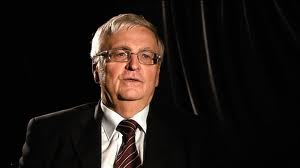By Andrew Warshaw, Chief Correspondent
February 27 – Theo Zwanziger, the influential German administrator overseeing FIFA’s reform process, has hinted there is still considerable work to be done to bring about a consensus over the way forward.
A statute-changing 10-point plan is to be voted on at the FIFA Congress in Mauritius in May in a bid to make FIFA more accountable following a string of corruption scandals.
One of the proposals is an upper ceiling on the age limit for both the FIFA president and members of the executive committee. This appears to have split opinion whereas Zwanziger gave the impression most stakeholders do agree on limiting the FIFA presidency to three terms and 12 years in total.
“There is still some debate about certain administrative issues. Some are calling for age limits, while others prefer a restriction on the number of terms of office,” Zwanziger, former head of the German FA, told FIFA’s website after a meeting of the working party comprising the six confederation general secretaries and legal representatives.
“We’ve seen two definite positions emerge. First of all, an age limit is seen as discriminatory, and secondly most people seem to be more in favour of a limit to the number of terms for which the FIFA president can hold office.
“One thing everyone does seem to be in agreement about is that the president should not be in office for more than 12 years. Several proposals were made as to how these 12 years should be divided but we will discuss these questions at our next meetings.”
Zwanziger is in a delicate position given that his home confederation, UEFA, has expressed strong opposition to a number of the reform proposals and has put forward its own alternative agenda. UEFA in particular is against the idea that all future high-profile FIFA appointees go through a vetting procedure conducted by FIFA’s audit and compliance committee.
Yet Zwanziger clearly backs the idea. “It is essential that the character of candidates be assessed,” he said.
“It seems logical to me that the ethics commitee should have the power to take preventive action. Anyone who wants to become FIFA president, sit on the executive committee or become a member of one of the major bodies should have a spotless reputation.
“We must have a guarantee that they will conduct themselves impeccably during their term of office and respect FIFA’s regulations.”
“There is one thing that needs to be made clear, though: this is not a case of digging around in the private lives of candidates or of punishing the slightest infraction. We need to be detached and yet be practical at the same time. FIFA will establish the boundaries that cannot be crossed.
“We have to respect everyone’s feelings in implementing this reform. The most important thing is to bring about greater transparency and ensure these processes end in agreement.”
Contact the writer of this story at moc.l1751732069labto1751732069ofdlr1751732069owedi1751732069sni@w1751732069ahsra1751732069w.wer1751732069dna1751732069

